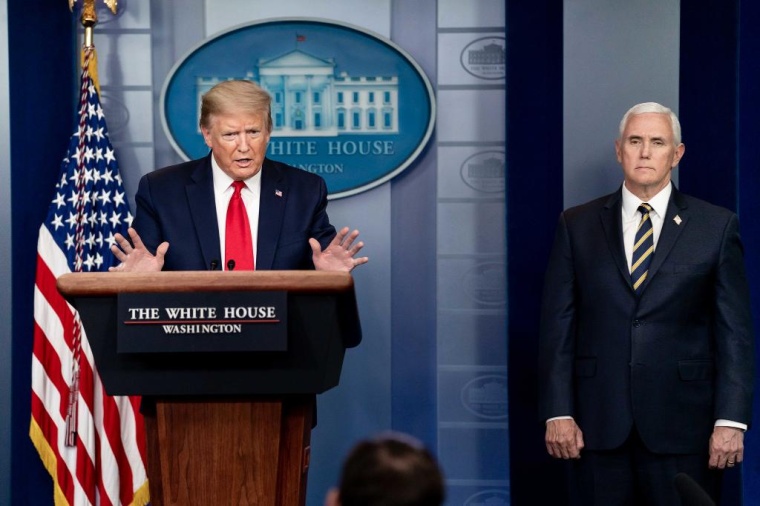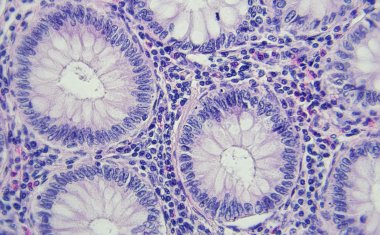Top US Vaccine Official Is Removed from Office

The former director of the US Biomedical Advanced Research and Development Authority (BARDA), who was removed from office this week, has called for an investigation into the way he said the emergency medical response agency had been “politicized” by the administration of President Donald Trump.
Top vaccine specialist Rick Bright was abruptly transferred to a new position at the National Institutes of Health (NIH), spearheading efforts to deploy point-of-care Covid-19 testing. In the aftermath, the US capital was abuzz with speculation about why the unexpected move took place at such a crucial time.
Bright's former deputy at BARDA Gary Disbrow, has been named interim director of BARDA until the job can be permanently filled. If the US experience of the past three years is any indication, however, the acting appointee will stay on for an extended period.
Comments in US national media quoted officials of the cabinet-level Department of Health and Human Services (HHS), to which BARDA as well as the Food and Drug Administration (FDA) and NIH belong, as saying they hoped the temporary appointment of an insider, who has worked at BARDA since early 2007, would reduce the disruption caused by the change of leadership.
As the coronavirus crisis moved into high gear earlier this year, several drugmakers agreed to work together with BARDA on finding a vaccine. The list included France’s Sanofi Pasteur, US healthcare giant Johnson & Johnson and US biotech start-up Moderna.
The vaccines global business unit of French Sanofi announced in mid-February it had agreed to renew an earlier collaboration with the US agency to further investigate an advanced pre-clinical SARS vaccine candidate in its pipeline. Johnson & Johnson’s Janssen unit similarly said it would expand an existing alliance with BARDA and co-fund R&D for a vaccine built around one of its own candidates.
In March, Moderna announced plans to begin trials shortly with its messenger RNA vaccine candidate and it was later revealed that the biotech had inked an R&D pact with BARDA, which the US trade journal Fierce Biotech said was worth $483 million.
No details have emerged as yet on any progress toward the US vaccine target. The dominant discussion has centered on the merits of the ant-malarials chloroquine and hydroxychloroquine touted by President Donald Trump a “game changer” in fighting the virus, in combination with the antibiotic azithromycin.
The US Food and Drug Administration’s (FDA) emergency authorization for chloroquine as an experimental treatment for COVID-19, authorized by the FDA shortly after the president’s promotion, appears to be linked to Bright’s removal, although there are two different versions of how or why.
On Apr. 23, Bright issued a statement dealing with his departure, in which he said he was pressured to funnel cash toward drug, which he described as one of several “potentially dangerous drugs promoted by those with political connections” and pharmaceutical companies with a vested political interest.
Acknowledging he had had previous differences with HHS leadership, the former BARDA director said he believed his transfer reflected his insistence that billions of dollars allocated by Congress to address the pandemic should be invested in “safe and scientifically vetted solutions, and not in drugs, vaccines and other technologies that lack scientific merit”
HHS has countered by accusing Bright of advancing the approval of chloroquine as a treatment himself, asserting that it was he who requested an Emergency Use Authorization from the FDA to facilitate COVID tests with supplies donated by Bayer, Sandoz and others. In his own statement, however, the former director said he “rightly resisted efforts to provide an unproven drug on demand to the American public."
Clouding efforts to understand what had actually happened within the US emergency medical response effort are HHS remarks to the press that BARDA moved too slowly, focused on the wrong investments and took too long to award its contracts.
“BARDA was not as responsive during the crisis” as it could have been, a former official, told US magazine Politico. “Rather than prioritizing therapeutics that could be available in weeks, Bright focused on products that would take weeks or months.”
Certain points of the HHS justification of the need for a change of leadership at BARDA, including that Bright did didn’t make a pitch to solicit potential investments in diagnostics, vaccines or treatments until March, seem at odds with the timing of announcements by Sanofi and J&J in February, some observers noted.
Asked during a White House press briefing about Bright’s removal from the agency, Trump’s documented comment was, “I never heard of him. The guy says he was pushed out of a job, maybe he was, maybe he wasn't. You'd have to hear the other side.”
Meanwhile, the president is said to be backing away from promoting chloroquine as a COVID-19 treatment, as a number of recent tests with the donated drugs have been interrupted due to the threat of potentially severe side effects.






